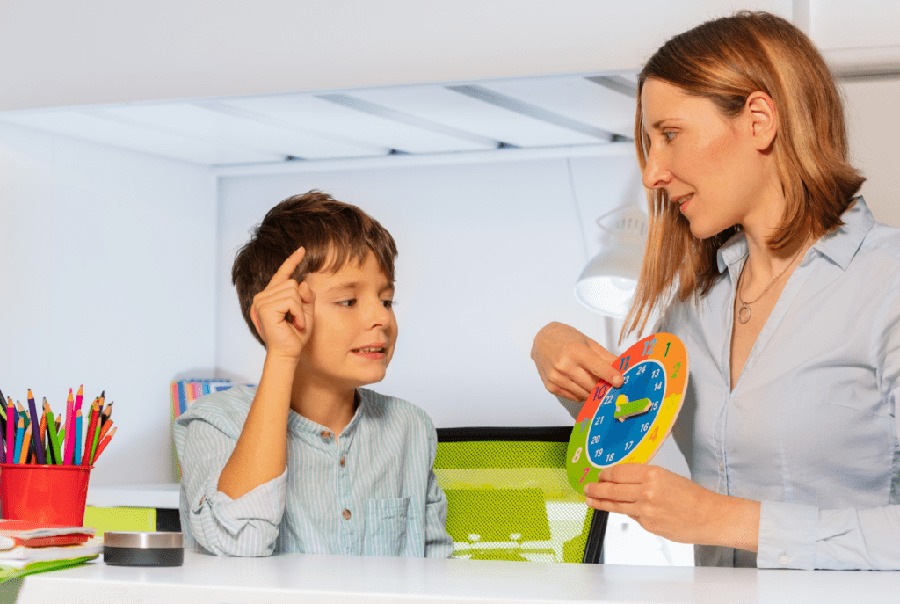Top Things Parents Should NOT Do With a Child With Autism
Parents of children with autism spectrum disorder are often told what they should do for their children, how they should parent, and what strategies will work best to help manage their child’s problem behaviors and what will work to improve the child’s skills and abilities.
The less often talked about recommendations have to do with what parents should NOT do with a child with autism. Of course, you are the expert on your child and every child is different, so what works or doesn’t work for one child may not be what is best for another; but, generally speaking, there are some important things to consider that are just not recommended for kids with autism.
Having Unclear or Undefined Expectations
It’s not very helpful for kids with autism when the adult who is caring for them, such as their parent or their teacher, doesn’t have clear expectations. When a child with autism doesn’t know what is expected of them, they are likely to have more challenging behaviors and it can also be more difficult for them to learn and develop optimally.
Short-Term Expectations
There are two different approaches to setting expectations for children with autism that are important to consider.
The first approach to setting expectations for children with ASD has to do with the child’s day to day behaviors including what the caregiver would like that child to accomplish in any given day. This might be the expectations parents have related to the child’s daily self-care habits, such as expecting them to brush their teeth and clean up after themselves as well as to treat other people with respect or to use words instead of aggression to ask for things they want.
Any of these examples are things parents can incorporate into their daily lives with their children to set clear expectations which will ultimately help their children to improve necessary life skills and to reduce maladaptive behaviors.
Long-Term Expectations
The second approach to setting expectations for children with autism has to do with what the caregiver believes and wants for the child’s future. This is related to things like how the parent views the child’s transition to adulthood or even what the parent would like to happen once the child attends high school.
Parents’ expectations and ideas for what their child’s life will be like in future years has an impact on that child’s life. Of course, it is very important to consider what the child wants and what is in the best interest of the child and not simply what the parent wants, but, it is part of a parent’s job to guide their child and, regardless of what the parent does, the parent’s actions, attitudes, beliefs, values, and expectations will impact their child in some way or another.
Research shows that the expectations that parents have about their children’s future, including their academic achievements, employment status, independent living, and even social experiences will correlate with the outcomes that children experience (Holmes, Kirby, Strassberg, & Himle, 2018).
Not Understanding the Behavioral Contingencies at Play
It is important for parents of children with autism to understand their child’s behaviors. It can really help when parents know what is influencing their child to act a certain way, whether it’s what triggers a behavior or what maintains or motivates a behavior.
Behavior is impacted by what happens before it and by what happens after it. Behavior science, including applied behavior analysis, approaches this process by identifying the antecedents and the consequences to a behavior. Antecedents are what happen before the behavior occurs and consequences are what happen after the behavior.
Antecedents to Behavior
Some antecedents can be thought of as things that trigger a behavior. Other antecedents “set the stage” for a behavior to occur or even for a behavior NOT to occur.
For example, a parent who puts fresh fruit on the table for her kids to eat for an after school snack is making it more likely that the children will eat fresh fruit for snack considering that the fruit is in a pretty easy to access location and the child doesn’t have a food aversion to fruit.
Consequences to Behavior
Consequences are the things that either make a child do something more often in the future or do something less often in the future. A consequence doesn’t mean what many people might immediately think of when they hear that term. It doesn’t mean discipline or punishment; not when you’re thinking from a behavioral science perspective anyway. A consequence is anything occurring after a behavior.
For instance, a consequence can be when a child who is learning to speak is given a drink after saying the word “drink.” The child experiencing that he can get a drink by using his words to ask for one makes it more likely that he will use the word “drink” for this purpose again in the future.
Another consequence could be when a parent takes a child’s cell phone or tablet away because the child did something mean to his sister. In this scenario, the parent is hoping the child’s unacceptable behavior toward his sister will happen less often or not at all in the future, and the parent is using the removal of the electronic device as a consequence to make that goal more likely to happen.
As a parent, you can greatly help your child in so many ways by understanding the antecedents and consequences to their behavior.
Not Expecting Enough of Your Child
Children with autism are amazing beings. It’s important for parents to believe in their child and to push their child to continue to grow and develop so the child can live their best life. When parents don’t encourage their child to continue to grow, develop, and learn new things, they aren’t really helping their child be the best version of themselves they can be.
Balancing Acceptance with Growth
Yes, sometimes, it can be hard to know when to accept your child for who they are and when to gently encourage them to move outside their comfort zone and try something new, but you can learn more about how to approach this balancing act by thinking about your child’s future.
What do you think will be best for them? What skills will they need to learn to live as independently as possible as an adult? What makes them happy and content – not just moment to moment but looking at the larger picture of their overall well-being?
The Experience of Flow for Greater Well-being
The research on happiness tells us that people sometimes need to do things that challenge them slightly in order to experience greater happiness and well-being in life overall.
One concept that is related to this idea is known as “flow.” Flow relates to the experience of being slightly challenged while doing an activity that one is able to mentally and physically connect with in an enjoyable way. Flow is associated with greater life satisfaction and well-being (Šimleša, Guegan, Blanchard, Tarpin-Bernard & Buisine, 2018).
Interestingly, some of the characteristics of flow are very much related to common traits of autism spectrum disorder. To briefly discuss some of these overlapping characteristics, the experience of flow and common traits of ASD both relate to:
- experiences of automatic reinforcement (or doing something for its intrinsic motivation or the sensory reinforcement caused by it)
- being hyper focused on something of interest to the person
- losing self-awareness by being lost in the moment
- having a distortion of time
- feeling in control of one’s experience
- and giving great attention to an activity
Flow applies to both adults and kids. Instead of just playing video games all day, which many kids probably would really like to do and might even think makes them happy, it’s important to think about how your child might expand their activities they engage in on a regular basis so they can experience even greater well-being through the opportunity to find activities that help them experience a state of flow more often. This is not to say that video games can’t offer a child a state of flow or improve their well-being in some way; It’s just important to consider giving kids an opportunity to have more experiences that could improve their quality of life now and in the future.
Expecting a Bit More
Let’s look at some examples of when it might be a good idea to gently challenge a child to move a bit out of their comfort zone.
- A child might learn he really enjoys being in nature if his parents give him the opportunity to get more comfortable with going on nature walks.
- Another child might get satisfaction from playing with and teaching his dog new tricks if he is encouraged to spend more time with the family pet.
- And another child might learn he really enjoys swimming if he is taught to swim even if he didn’t like it much at first or if he would rather have been playing video games.
All of these activities might have challenged the child to move out of their comfort zone a bit, but, in the bigger picture, they allow the child to experience greater well-being in life and really offer the child the chance to experience happiness in a new way while also teaching them skills that will be beneficial for them for a lifetime.
A child who can accomplish things and succeed at something that felt almost impossible for them to do, can experience such great satisfaction and a great boost in self-confidence when he finally is able to do that task.
It’s important not to get too complacent with your child. It’s okay to continue to gently challenge them to learn and grow and develop their skills and abilities. You can do this in a compassionate and loving way and, of course, you don’t need to make your child so uncomfortable that they become extremely anxious or depressed, but, consider your child and always believe in them and know they can achieve and learn more…We all can!
What Parents of Children with Autism Should NOT Do with Their Kids
You know your child best. What works for some kids might not work for others. However, there are some general recommendations based on effective strategies of how to best help children with autism spectrum disorder thrive. Some of these strategies are also related to things that are generally found to be not-so-helpful to kids with autism.
We discussed a few of the things that are not recommended when it comes to helping kids with autism.
- It’s not helpful to have unclear or undefined expectations.
- It’s not helpful when the parent or caregiver of a child with autism doesn’t understand the antecedents and consequences of the child’s behaviors.
- It’s not helpful when parents expect too little of their children.
Your child ultimately just needs your love, guidance, and support. The tips in this article were meant to help give you a bit more perspective on things that are found to be more problematic when it comes to guiding children with ASD.
Even if you find that you do some of the things that we’ve discussed from time to time, that’s okay. No parent does everything perfectly or follows all the scientific recommendations ALL the time. Parenting is a journey.
The bottom line is to add in more of what you think is best for your child and try taking out a bit of the things in your child’s day to day life that you think don’t really suit your child’s needs. Try avoiding some of the general guidelines about what not to do with kids with autism and add in those things that are more helpful and beneficial for your child’s overall quality of life and well-being.


